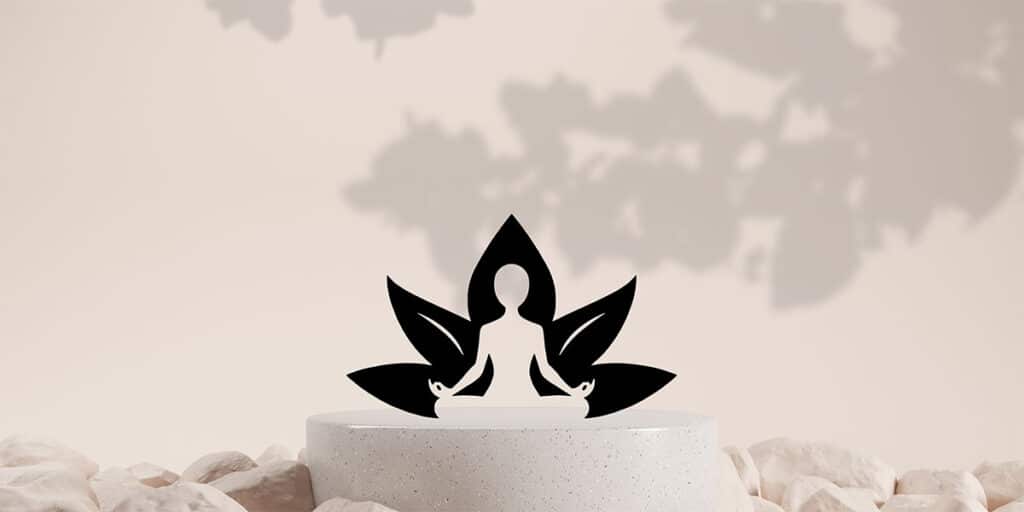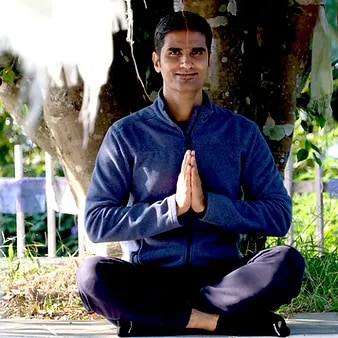The Multifaceted Paths of Yoga: A Journey to Holistic Well-being
by Hardik Mehta

Yoga, an ancient practice that originated in India thousands of years ago, has evolved into a holistic discipline that offers physical, mental, emotional, and spiritual growth. It encompasses a vast array of techniques and philosophies designed to help individuals live healthier, more balanced lives. With its roots deeply embedded in traditional Indian wisdom, yoga offers multiple paths, each tailored to different personalities and life circumstances. Here, we explore the multifold paths of yoga, shedding light on the journey to inner peace, self-awareness, and harmony.
The Main Paths of Yoga
Yoga is not a one-size-fits-all practice; it comprises various paths, each designed to suit individual needs, goals, and inclinations. The multi paths of yoga are Karma Yoga, Bhakti Yoga, Raja Yoga, Jnana Yoga, Hatha Yoga, Mantra Yoga and Japa Yoga.
- Karma Yoga – The Journey of Selfless Service
Karma Yoga is the path of selfless action, emphasizing duty and work performed with the spirit of selflessness. Originating from the Sanskrit term “Karma,” which signifies action or deed, Karma Yoga guides individuals to perform their duties selflessly, without clinging to the outcomes.
By focusing on performing, one’s duties with dedication, compassion, and a sense of purpose, Karma Yoga helps individuals shed ego and embrace humility. In the modern world, adopting Karma Yoga in daily life can mean volunteering, offering services to the community, or simply performing one’s responsibilities with mindfulness. For those seeking to balance their spiritual practices with worldly engagements, Karma Yoga offers an ideal path.
- Bhakti Yoga – The Way of Love and Devotional Surrender
Bhakti Yoga is the path of love, devotion, and surrender to a higher power. Rooted in cultivating a deep sense of devotion and love toward a divine entity, this path is all about dissolving one’s ego through emotional connection and heartfelt surrender.
The practices of Bhakti Yoga often include prayer, chanting, singing hymns, and rituals, all performed with a deep sense of devotion. By focusing the mind on divine love, practitioners experience inner peace, contentment, and unity with the cosmos. This path is perfect for individuals with a loving, emotional nature who seek to express their spirituality through devotion.
- Raja Yoga – The Route to Mastery through Self-Discipline and Control
Raja Yoga, often referred to as the “royal path,” is primarily concerned with meditation and the control of the mind. Raja Yoga is outlined in Patanjali’s Yoga Sutras and incorporates eight limbs (Ashtanga), including ethical conduct (Yamas and Niyamas), physical postures (Asanas), breath control (Pranayama), withdrawal of senses (Pratyahara), concentration (Dharana), meditation (Dhyana), and finally, the state of ultimate bliss (Samadhi).
Raja Yoga suits individuals who are disciplined and willing to undergo deep meditation practices to attain mental mastery and self-control. The practice of Raja Yoga demands commitment and a systematic method to mastering both mind and body, ultimately paving the way to spiritual awakening.
- Jnana Yoga – The Way of Knowledge and Insight
Jnana Yoga, the route of wisdom and knowledge, emphasizes intellectual exploration and self-reflection. It involves a deep exploration of spiritual texts, meditation, and contemplation to understand the true nature of reality and the self.
Jnana Yoga practitioners engage in questioning the nature of existence, asking “Who am I?” and “What is real?” This path is ideal for individuals who are introspective, intellectually curious, and fascinated by philosophical exploration. It is considered the most challenging path, as it requires detachment, introspection, and a strong will to go beyond the illusions of the material world.
- Hatha Yoga
The Path of Physical and Mental Harmony Hatha Yoga is a branch of Raja Yoga that focuses on the physical body and breath as tools for achieving balance and preparing for meditation. The word “Hatha” is derived from two Sanskrit words: “Ha” (sun) and “Tha” (moon), symbolizing the balance between opposing forces within us. Hatha Yoga involves the practice of physical postures (asanas), breath control (pranayama), and relaxation techniques to align the body and mind.
- Mantra Yoga: The Path of Sacred Sound Mantra Yoga involves the repetition of sacred sounds or phrases (mantras) as a means to focus the mind and raise spiritual vibrations. By chanting mantras with intention and devotion, practitioners tap into the vibrational energy of the universe, aligning their consciousness with higher spiritual frequencies. The act of chanting helps purify the mind, heighten awareness, and connect with divine energy.
- Japa Yoga: The Path of Meditative Repetition Japa Yoga is closely related to Mantra Yoga but emphasizes the repetition of a specific mantra using a mala (prayer beads) to count the recitations. This focused repetition calms the mind, deepens concentration, and helps practitioners cultivate mindfulness. Popular mantras such as “Om,” “Om Namah Shivaya,” and “Gayatri Mantra” are often used to invoke divine presence and purify the practitioner’s thoughts.
Integrating the Paths of Yoga
A comprehensive yoga practice may encompass the selfless service of Karma Yoga, the heartfelt devotion of Bhakti Yoga, the mental mastery of Raja Yoga, and the profound knowledge of Jnana Yoga. Modern yoga schools, like Sayujya Yoga in Mumbai, offer comprehensive programs that encompass various aspects of these paths, guiding practitioners toward a holistic state of well-being.
Yoga Training in Mumbai: The Best Place to Begin Your Journey
Mumbai, a city blending modernity with tradition, is home to some of India’s finest yoga schools. Among them, Sayujya Yoga stands out as one of the best yoga institutes, offering a variety of courses ranging from Yoga Alliance Courses in Mumbai to Yoga Diploma programs. Their holistic approach to yoga, blending ancient philosophies with contemporary practices, makes it an ideal place for anyone looking to deepen their understanding of yoga.
Located in Ghatkopar East, Sayujya Yoga offers regular Yoga classes and an extensive curriculum for those pursuing Yoga Teacher Training Courses in Mumbai. The faculty comprises seasoned practitioners who guide students through the multifold paths of yoga, ensuring a comprehensive learning experience.
Yoga is a vast and profound discipline, offering multiple paths to suit different personalities and life stages. Whether you are drawn to the selflessness of Karma Yoga, the devotion of Bhakti Yoga, the mental discipline of Raja Yoga, or the wisdom of Jnana Yoga, there is a path for everyone. In today’s world, contemporary practices like Vinyasa, Ashtanga, and Yin Yoga provide additional avenues to explore the benefits of yoga.
If you are seeking to begin or deepen your yoga journey, Sayujya Yoga in Mumbai offers exceptional training courses tailored to guide you through these diverse paths. From Yoga TTC in Mumbai to daily classes in Ghatkopar East, Sayujya Yoga provides an enriching environment for personal growth and holistic well-being. Embark on this transformative journey and experience the multifold benefits of yoga for your mind, body, and soul.
About the Author

Hardik Mehta
Hardik is an E-RYT 500 & YACEP (Yoga Alliance Continuing Education Provider), Yoga Alliance, USA. He has been practicing yoga for the last 9 years. Prior to finding his true calling in Yoga, he was working with various corporates for 12 years in the Retail and eCommerce sector.
